Why are some cucumbers bitter, either from the grocery store or your own garden? The weather, as well as variety, can make one cucumber taste more bitter than another. The heat waves this year have definitely already affected cucumbers, making many of them more bitter than usual.
The stem end, skin, and layer just beneath it have the highest amount of bitter compounds, which is why peeling and discarding the end helps reduce bitterness.
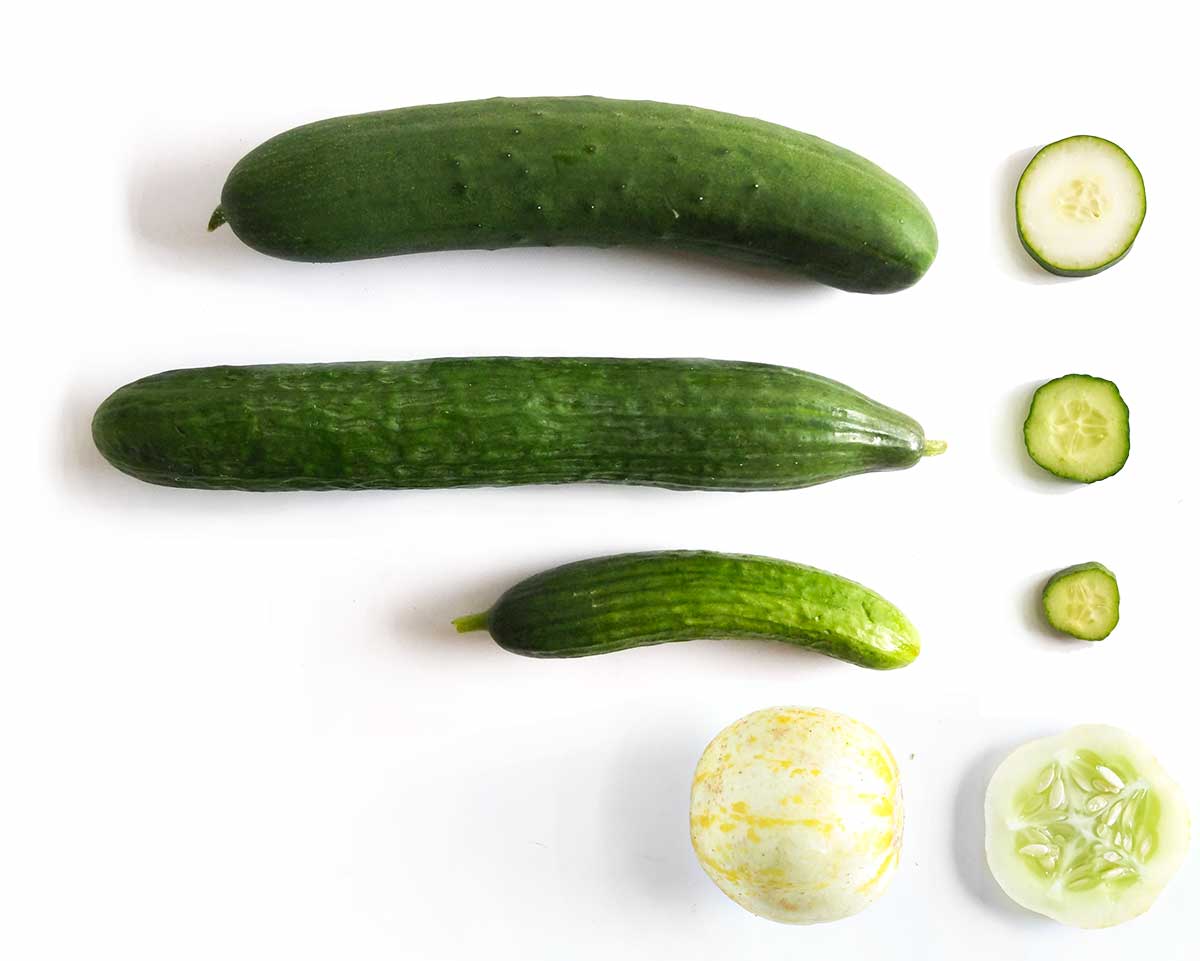
Jump to:
Varieties
The first thing to know is that not all cucumbers are equal. Some varieties are naturally more bitter while others have almost no trace of bitterness. This is due to the amount of cucurbitacin they develop, the compound responsible for bitterness.
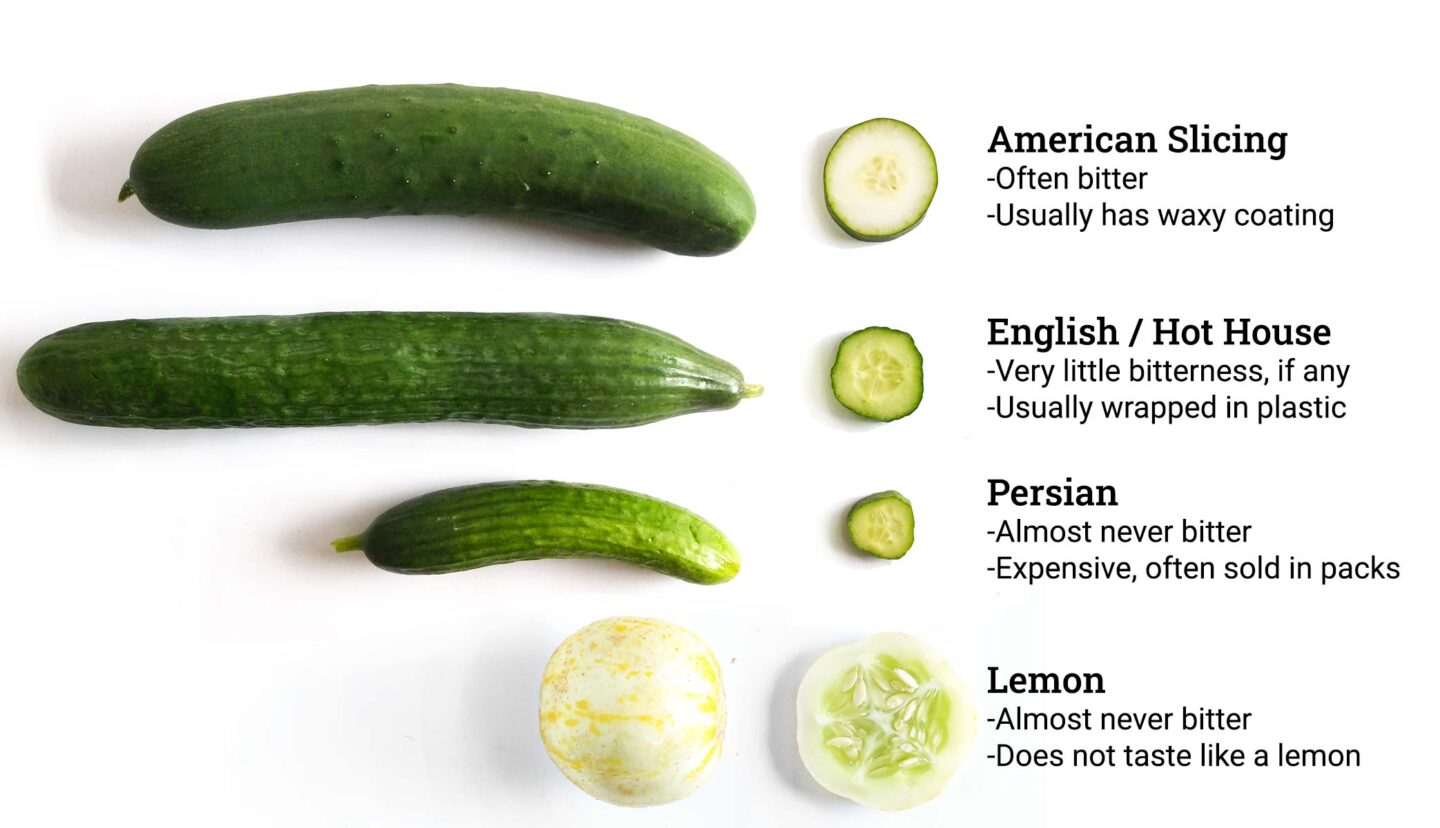
American slicing cucumbers are the most common type at the grocery store and they usually taste the most bitter. On the opposite end of the spectrum, Persian cucumbers have little-to-no bitter flavors and a full cucumber flavor.
- American slicing cucumbers: commonly bitter
- English / Hot House: very little bitterness, if any (these are usually shrink wrapped in plastic at the store)
- Persian: almost never tastes bitter (these are smaller and often sold in packs of 4-6)
- Lemon cucumber: almost no bitterness, if any (they are round and yellow, and do not taste like lemons)
When growing in your own garden, you can also look for bitter-free varieties like Marketmore 76, Marketmore 97, Sweet Slice, Carmen, Lemon, Beit Alpha, and Green Fingers. They are widely available at most seed retailers. If you are interested, read "The best & cheapest sources for garden seeds."
Growing conditions
Cucumber plants produce the cucurbitacin compound to protect themselves from animals and pests. This chemical is concentrated in the roots and leaves and usually doesn't affect the cucumber itself.
Weather, stress (not enough nutrients or sunlight), and other growing conditions can increase bitterness. This is why one cucumber might be perfectly fine and the next will taste pretty bitter.
Stretches of hot days and lack of rain are a recipe for bitter tasting cucumbers, whether they are grown commercially or in your garden. They prefer temperatures between 65-75 degrees. If you are growing your own cucumbers in the garden this year, consider shading them if temperatures get quite hot. You can do this with outdoor umbrellas or by hanging shade cloth between garden stakes.
Some American slicing cucumbers can become quite bitter from poor growing conditions. However, other varieties where bitter traits have been bred out might only have the slightest taste of bitterness due to weather (if at all).
Super-tasters
Cucumbers will taste a lot more bitter if you're a super-taster. Super-tasters have about twice as many taste buds as the average person (about 25% of people are super-tasters). This makes food more intense and sometimes unpalatable, from the bitterness of coffee to the spiciness of hot sauces.
The other thing at play is that some people can taste certain bitter compounds while others can't. This means while you're friends stare at you in disbelief when you claim a food or cocktail is too bitter, they really can't taste it, while you can. For a fun party trick, prove it with these test strips to test yourself and your friends.
I attended a food seminar where the audience was tested. It turns out I am a super-taster and can also detect the bitter compounds. Meanwhile, my friend was neither of those. Things started to make sense now: he loves overly bitter amaro (a bitter type of alcohol) and bitter foods, while amaro is one of my least favorite things to drink.
All this means is when you taste bitter flavors in food (like cucumbers) you're not imagining things or being overly picky. It doesn't mean you have to give up on cucumbers - you just have to buy less bitter varieties and if one ends up bitter, know what to do about it.
Are they safe to eat?
Bitter tasting cucumbers are safe to eat, as long as they aren't also showing signs of spoilage (like a sour smell or deterioration). Higher concentrations of the bitter compound, cucurbitacin, can cause gas for some people (which is why bitter-free cucumber varieties are often called 'burpless').
How to fix bitter cucumbers
Fix bitter tasting cucumbers by peeling the skin and cutting off the stem end. You can also use salt, sugar, and acid to counter the bitter flavors.
Discard the bitter parts
When the bitter compounds make their way into the cucumber, they are concentrated at the stem end (where the stem was attached) and just under the skin.
If your cucumber is bitter, cut a slice from the middle and taste it again to see if the center is less bitter. If the middle slice tastes better, just discard the stem end.
Another option is to peel off the skin and a layer below, since the layer just under the skin can also contain bitterness.
Add salt
Salt transforms food in numerous ways, and one of those is inhibiting our ability to taste bitterness. There are no shortage of scientific studies to back this up, finding that salt improves many types of food by reducing bitterness, from making grapefruit taste sweeter to coffee less bitter.
"Salt is used as a universal flavour improver because at low concentrations it will reduce bitterness, but increase sweet, sour and umami, which is desirable for sweet recipes. But at higher concentrations it suppresses sweetness and enhances umami, which is good for savoury things." (BBC Science Focus Magazine)
You can reduce the bitterness in cucumbers with salt a couple of ways.
- Salt cucumbers directly: do this with a light touch so you don't make the cucumber taste like seawater. When salted, cucumbers will lose moisture and can make a veggie tray wet or ruin the consistency of other food. If this will be a problem, you can salt a cucumber ahead of time and let it drain in a colander or on a paper towel.
- Use cucumbers in a salty dish: no need to salt the cucumber directly if you are adding it to other salty food.
Add sugar
Sugar also reduces our ability to detect bitterness, one of the main reasons it's added sugar to grapefruit, cocktails, and coffee. Sometimes both sugar and salt are used to reduce bitterness, like in chocolate desserts (pudding or ice cream) or cocktails like margaritas.
It's likely that cucumber dishes will benefit more often from salt than sugar. But there are a few instances where a small amount of sugar would make sense. For example, using yogurt in a tzatziki sauce, or adding sugar to a vinegar-based cucumber salad. Also pairing cucumbers with a sweet fruit (watermelon or strawberries) can tame the bitterness.
Vinegar & pickling
A good vinaigrette can tame bitterness as the sour and acidic flavors compete (as well as the sugar in a sweeter dressing). This also works to counteract bitterness in salad greens.
Pickling brines (especially with added sugar) can also reduce bitterness. You may need to let them sit in the brine for several weeks to tame them.
Don't use them
There are cases where cucumbers are really bitter throughout all of the flesh, that it just isn't worth using. You'll waste the cucumber but keep yourself from wasting all of the other ingredients to make a dish that you don't want to eat.
If you find yourself in this situation time and time again, it's probably worth it to buy the more-expensive, bitter-free varieties.
Removing bitterness for specific dishes
It's best to always taste your cucumbers first. They might not be bitter at all. But if they are, you can take these extra steps before using them in a recipe.
- Tzatziki (a cucumber-yogurt dip): slice off the stem end and peel the skin and a layer below it. Mixing it with yogurt (which has some sugar in it) will reduce the bitter flavor. If it's still bitter, add salt, a little at a time. (Tzatziki sauce recipe)
- Fresh salads: remove the stem end. You can peel or not. You can also salt it directly. If planning a salad, it might be worth seeking out Persian or English cucumbers so they are less bitter in the first place (but are more expensive). Add a sweet vinaigrette and some fatty cheese to the salad.
- Strawberry-cucumber salad (or a watermelon-cucumber salad): the sweetness from fruit and the bitterness from cucumbers can actually make a nice balance, so I suggest testing the combination first. Slice a strawberry along with a slice of cucumber and eat them together. If it still tastes too bitter, cut the stem end and skin off. If that isn't enough, salt the cucumbers directly before adding to the salad.
- Gazpacho: some recipes use both cucumbers and green bell peppers. As mentioned in "Dealing with bitter bell peppers", green bell peppers are also bitter, but their red, orange and yellow counterparts are not. Try swapping in a different colored pepper if you are concerned about bitterness. If the finished dish is bitter, add salt, a little at a time.
- Cucumber salad: most recipes call for you to 'sweat' the cucumbers - that means you salt them and let the moisture drain off. So you're already on your way to reducing bitterness. Recipes also usually add sour cream along with sugar, another way to reduce the bitterness. These recipes should be fairly balanced, but you could add salt or sugar at the end, to taste.
- Gyro, falafel, Italian, and other salty sandwiches: the saltiness of most sandwiches should counter the bitterness. But you could remove the stem end and skin if necessary. (Recipe to make your own gyro meat & the best grocery store alternative)
Recipes & resources
Get cucumber recipes that counter the bitterness, and learn about why other fruits and vegetables might be bitter. You can use similar tricks to counteract the bitterness for other produce too.
Lastly, check out other monthly in-season produce guides.

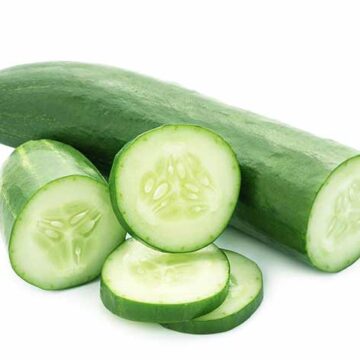
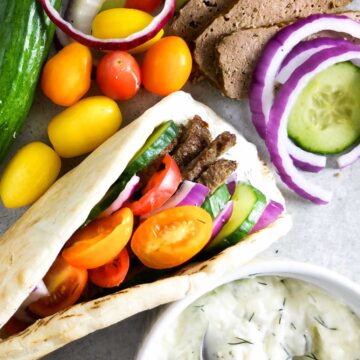
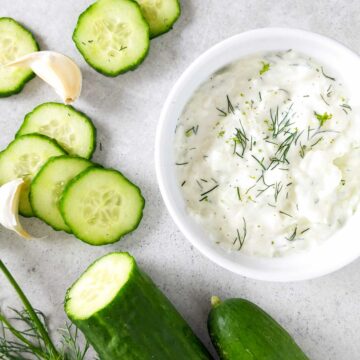
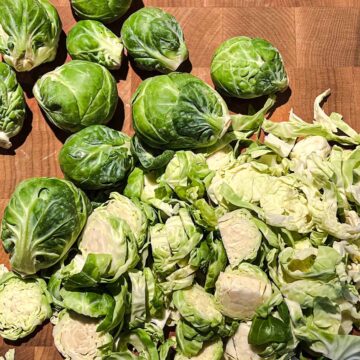
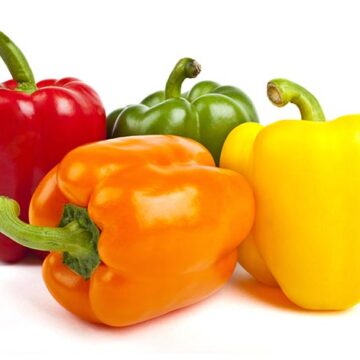
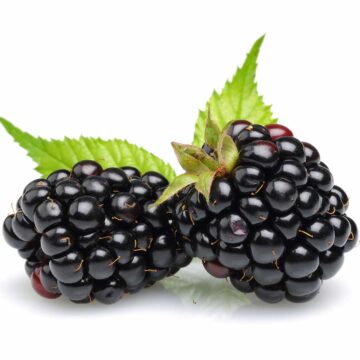
Shrikant says
Is it safe to eat bitter cucumber?
Vee says
Yes, bitterness is natural in most cucumber varieties and okay to eat.
Kathy says
Why are my half runner beans “straw like” texture after they are cooked ?My beans “half runners” were always crisp and tender . Not any more … they look good when picked but they might feel hard when stringing them . And definitely are not the same tender bean I am use to. I have even given up planting half runners anymore …. My family’s all time favorite…. We would love to have a big pot of good half runners beans
Stephanie Paul says
I can't find a recipe for Bitter Apple/Bitter Pear cucumber, the real knobby one. How to prepare, since the skin is so indented? Can someone help with this. Neighbor grows them, his wife said, "too bitter'. but it has vitamins for sure!!! Should they be cooked, or eaten cold?
Vee says
I'll see what I can find out 🙂
PK says
I agree with Patricia, I learned the same from my parents
Patricia Baldwin says
I was taught that cutting the end off the cucumber and rubbing the cut end in a circular motion over the now open end of the cucumber would remove the bitterness. A white foam will result from this rubbing and that is then wiped away.
LadyBirdMarie says
I told the same thing about rubbing the ends, however, even with salting and rinsing, any type cucumber, they still have a slight bitter taste. So, I mix them with other foods. I never tasted the bitterness, however, until I got older, and started buying store bought cucumbers.